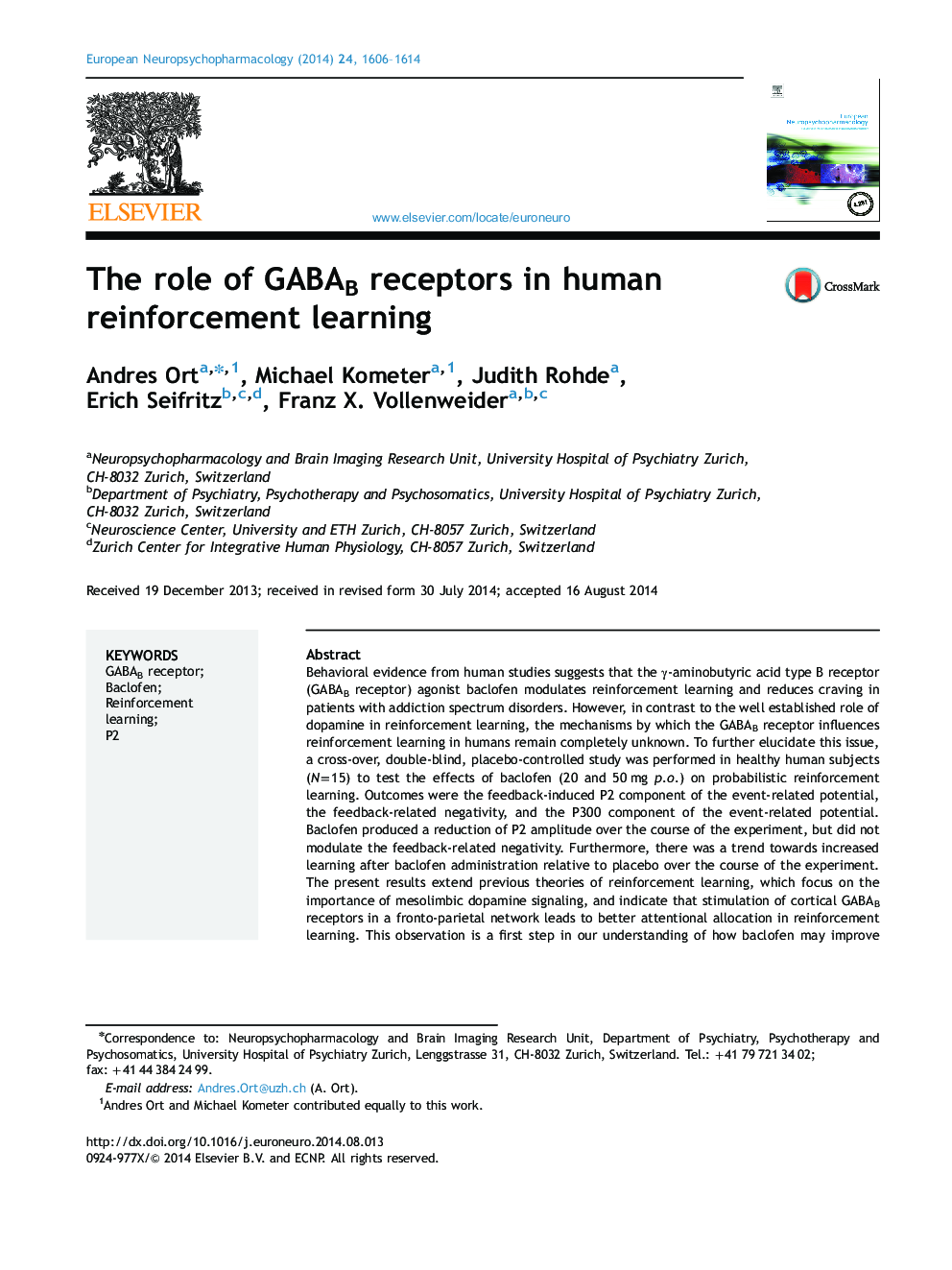| Article ID | Journal | Published Year | Pages | File Type |
|---|---|---|---|---|
| 10299556 | European Neuropsychopharmacology | 2014 | 9 Pages |
Abstract
Behavioral evidence from human studies suggests that the γ-aminobutyric acid type B receptor (GABAB receptor) agonist baclofen modulates reinforcement learning and reduces craving in patients with addiction spectrum disorders. However, in contrast to the well established role of dopamine in reinforcement learning, the mechanisms by which the GABAB receptor influences reinforcement learning in humans remain completely unknown. To further elucidate this issue, a cross-over, double-blind, placebo-controlled study was performed in healthy human subjects (N=15) to test the effects of baclofen (20 and 50 mg p.o.) on probabilistic reinforcement learning. Outcomes were the feedback-induced P2 component of the event-related potential, the feedback-related negativity, and the P300 component of the event-related potential. Baclofen produced a reduction of P2 amplitude over the course of the experiment, but did not modulate the feedback-related negativity. Furthermore, there was a trend towards increased learning after baclofen administration relative to placebo over the course of the experiment. The present results extend previous theories of reinforcement learning, which focus on the importance of mesolimbic dopamine signaling, and indicate that stimulation of cortical GABAB receptors in a fronto-parietal network leads to better attentional allocation in reinforcement learning. This observation is a first step in our understanding of how baclofen may improve reinforcement learning in healthy subjects. Further studies with bigger sample sizes are needed to corroborate this conclusion and furthermore, test this effect in patients with addiction spectrum disorder.
Related Topics
Life Sciences
Neuroscience
Biological Psychiatry
Authors
Andres Ort, Michael Kometer, Judith Rohde, Erich Seifritz, Franz X. Vollenweider,
